By Hila Cohen
In one of the most water-scarce regions in the world, where climate change has led to lower precipitation rates, Israel has successfully achieved water security. Despite these challenges, drought conditions do not disrupt the water supply for human or agricultural consumption in the country. How was this made possible? Through innovation in water resources management.
To meet the water needs of its growing population, Israel has implemented institutional and regulatory reforms, invested in infrastructure, and utilized large-scale wastewater reuse and seawater desalination. These measures, combined with effective regulation and pricing, have helped Israel reduce the overexploitation of freshwater resources and improve its resilience to climate change.
Here are a few highlights of Israel’s water sector achievements:
- New Sources of Water
- About 94% of all wastewaters is collected and treated, and 87% is reused, primarily for agriculture.
- Israel’s five desalination plants are among the most efficient in the world, supplying over 80% of the country’s domestic urban water.
- Freshwater Water allocations Overall, between 2000 and 2018, agriculture’s share of freshwater abstractions decreased from 64% to 35% of total water abstractions.
- Water infrastructure and distribution. Israel has built a sophisticated infrastructure network that can efficiently transport the water from north to south and from east to west, with a low-to-zero-water
The IDB, together with the Israeli government and Israel Innovation Institute, organized a study tour this past month benefiting 29 representatives from client countries and bank staff across 12 counties in the region. The study tour aimed to enhance participants’ capacity to design and implement innovative policies and technologies for improved water resources management in conditions of water scarcity focusing on the topics below.
1. Governance of W&S sector
The first part of the study tour was focused on water governance. The participants received an elaborated introduction to the countries’ policy and regulation by senior policy makers from the Israeli Water Authority, focused on tariffs, the sector strategic planning process, particularly with desalination and reuse of treated wastewater, and Israels water laws, among others. This policy session included remarks by Israel Water Authority’s director general the Chief Economist from the Ministry of Finance as well as representative from the Ministry of Foreign Affairs.
2. Ecosystem Development
As part of the tour, the delegation visited in the Negev, Israel desert area. organized and facilitated by the Israeli Innovation Institute, the day exposed the delegation to the kibbutz lifestyle in Hatzerim, hosted by Netafim drip irrigation company. The visit provided a glance on the Desertech community: it portrait the process of creating an innovation eco-system by visiting ecosystem actors such as the innovation hub INnegev, and showcasing new technologies, such as the Laguna off-grid wastewater treatment. The day included an interactive “creating innovation ecosystem workshop”, where the participants applied the Innovation Institute’s 5 pillars model on the water innovation ecosystem in Latin America & discussing practical tools for the next steps.
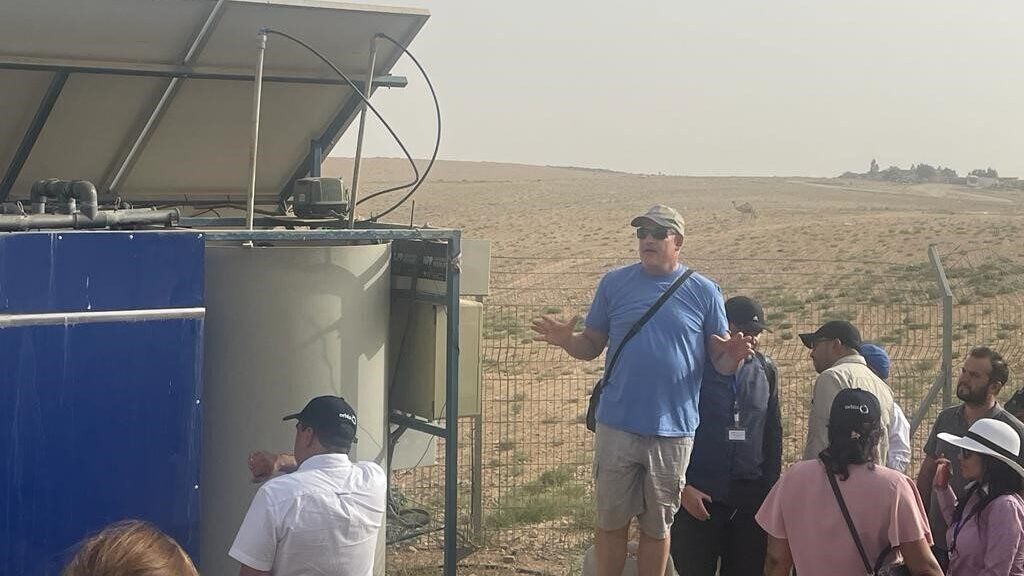
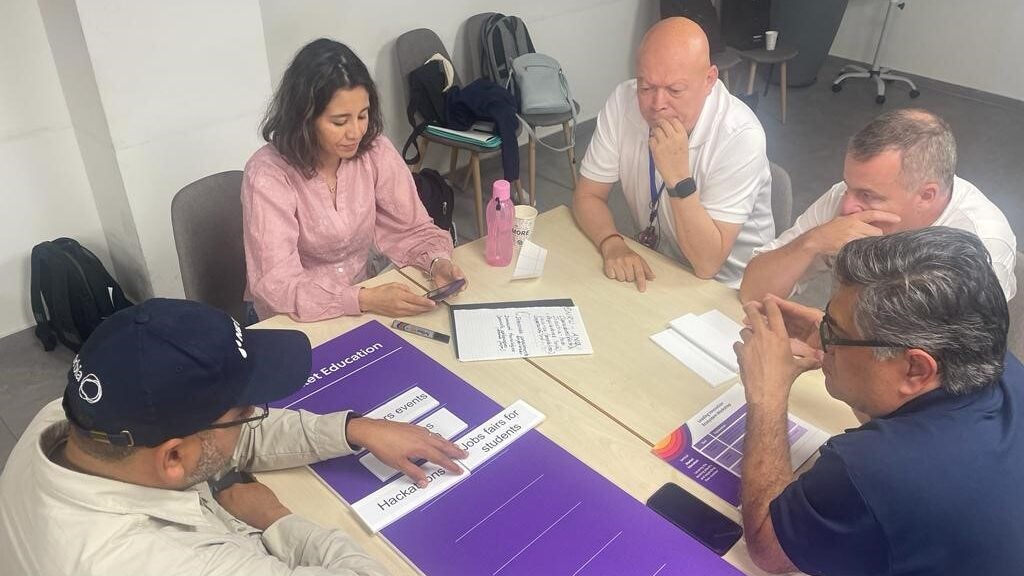
3. Alternative Sources of Water
The third day was focused on water reuse, desalination technologies and policies, showcasing its widespread use in different sectors in the country. The participants visited Sorek, one of the largest desalination plants in the world, where IDE company gave an overview of the technical and public private partnership (PPP) structure of this type of plant. The delegation also visited Intel Industrial site, provided insights on the incentives to use water reuse for the industry. The day was concluded with another interesting use of desalination to treat the saltwater intrusion in the aquifer, presented by Israel water company- Mekorot.
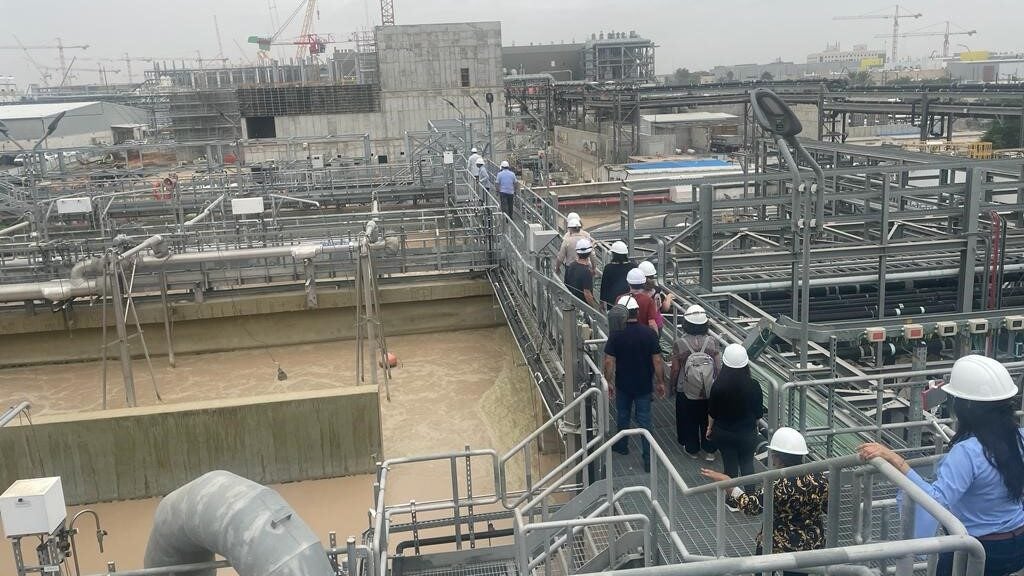
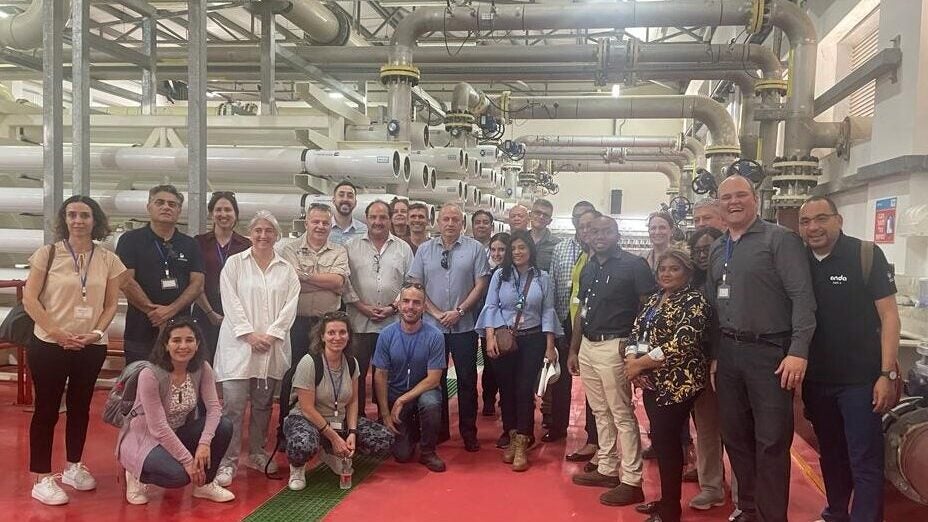
4. Implementing Water and Sanitation Innovations
The study tour last day included a visit to Mekorot’s headquarters, and presented their role as the water company, highlighting the role of water management and planning in the sector. The visit included presentation by the water authority and cyber security experts, discussing water security preparation and response. The delegation visited the Shafdan wastewater treatment facility, that treats about half of Israel’s total annual household water consumption, for agricultural uses. The participants saw firsthand the advanced system including the biogas and infiltration sites. the delegation visited utility- Mei Avivim, the second largest water utility in Israel. The water utility presented their challenges and the attempt to overcome problems like non-revenue water by implementing new technologies and cyber security measures. The last visit of the day was hosted by the Israeli Export Institute, that gathered leading tech companies in the water sector relevant to the regions challenges.
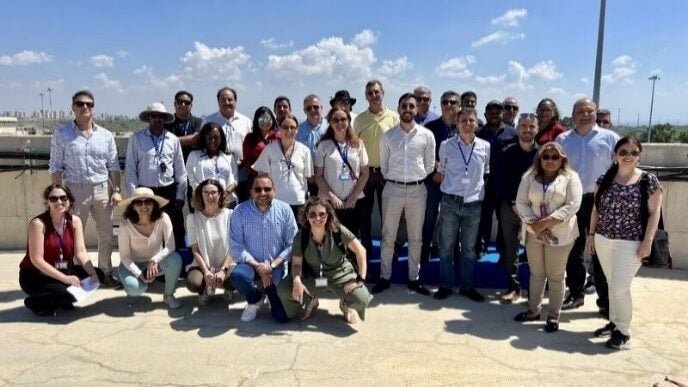
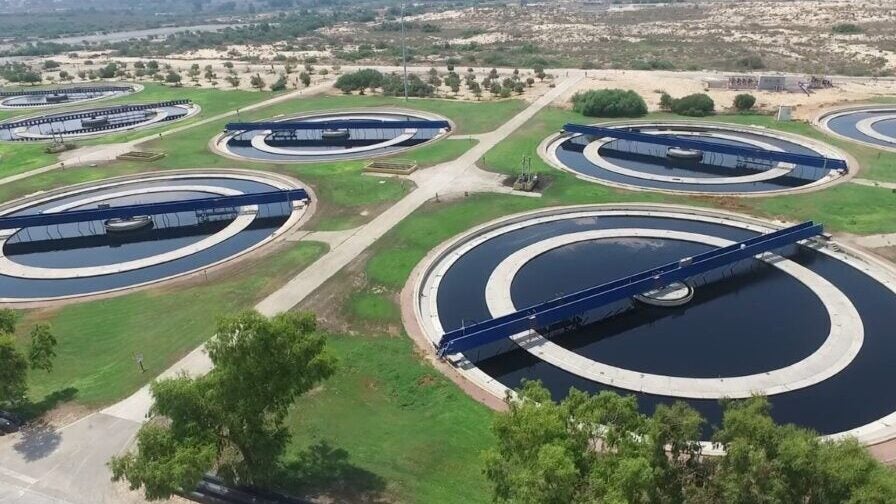
Moving forward
As the partnership between IDB and Israel continues to focus on innovative policies and technologies, the IDB is launching a new call for proposal- Ideas in Action 2023. The initiative seeks to support public, private, or mixed water, sanitation or energy service providers—as well as energy ministries in Latin America and the Caribbean—that have management and process challenges, and connect them with innovative solutions. The winners will receive support such technical assistance, feasibility studies, and training on implementing innovation pilot.
For more information https://challenges.tekuoia.com/calls/ideas_en_accion_2023
About Source of Innovation
Source of Innovation is an alliance of the IDB Group with external partners to promote the development and adoption of innovative solutions in the water, sanitation, and solid waste sector to achieve smart, inclusive, and sustainable services, with a focus on service providers in Latin America and the Caribbean.
Guest Author
Hila Cohen Mizrav is a Water Resilience Specialist with over 10 years of experience in the environmental sector and international development. Her expertise lies in water management, digitalization and innovation in Latin America and the Caribbean, as well as East and Central Africa. She has worked with the World Bank and Inter-American Development Bank on water utility improvement and capacity building. Hila holds a master’s degree in environmental policy and international relations from the Hebrew University of Jerusalem. She currently resides in Washington DC with her family.

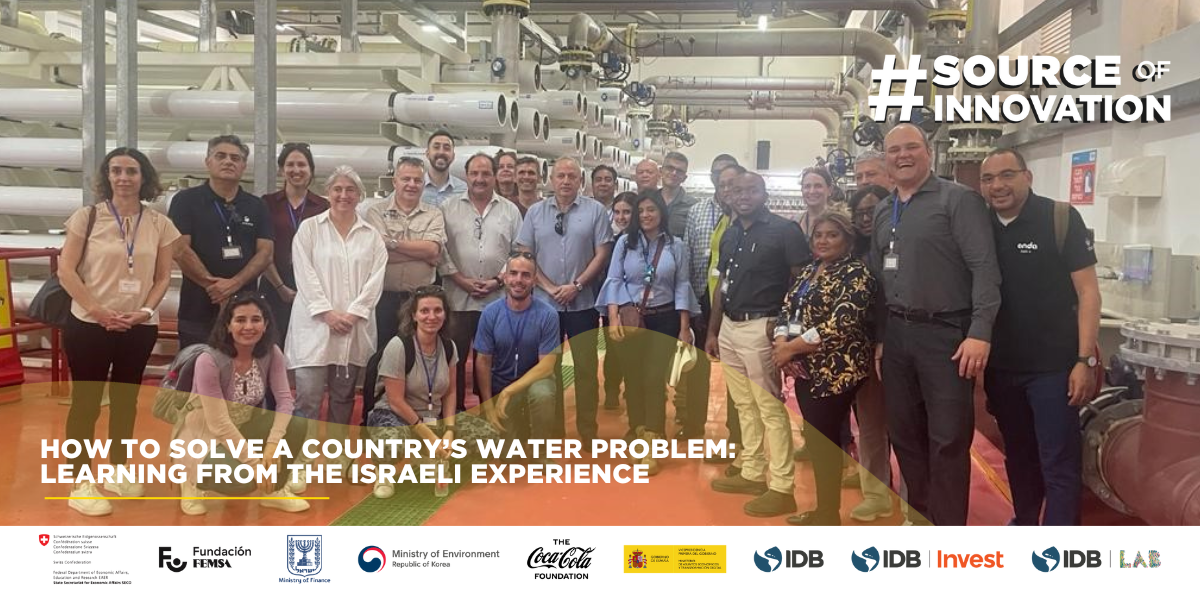
Leave a Reply